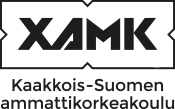Tourism risk management (5 cr)
Code: MR00AF20-3003
General information
Enrollment
15.08.2019 - 30.08.2019
Timing
26.08.2019 - 31.12.2019
Number of ECTS credits allocated
5 op
Virtual portion
5 op
RDI portion
2 op
Mode of delivery
Distance learning
Campus
Kotka Campus
Teaching languages
- Finnish
Degree programmes
- Degree Programme in Tourism and Service Business
Teachers
- Marjut Kasper
Groups
-
MRKT17SMTourism and service business, part-time studies
Objective
You are able to -look for information about tourism risks and safety issues -recognize the risks in various tourism services, activities and products -know and understand the duties and responsibilities of tourism enterprises, entrepreneurs and staff in safety and risk management -perform a risk assessment -in your work follow the duties and responsibilities defined in legislation and guidelines concerning tourism risks -communicate properly about risks and safety issues
Content
Where do you find information, models and guides about tourism risk and safety issues? What kinds of risks and safety issues are involved in tourism? What are the duties and responsibilities of entrepreneurs and staff in tourism field? How do you perform a risk assessment? What kinds of safety documents are required in hospitality businesses? How do you work responsibly and according to safety norms? What is good risk and safety communication?
Teaching methods
Scheduled track:
This course examines the concepts of Tourism risk management and legal liability in tourism and hospitality. We’ll review theoretical risk concepts and practical risk management applications while exploring applicable areas of statute, tort, and contract law. Insurance and occupational health and safety are also discussed.
Managers in hospitality and tourism bear the responsibility of operating legal, moral, and ethical businesses to reduce risk and liability. To be able to do this, prospective managers must familiarize themselves with relevant laws and processes. By the end of this course, students will develop the skills to apply risk management principles to maintain legal, safe, efficient and sustainable hospitality and tourism operations. The course will be delivered in a seminar-style and students will participate in deep discussion, often addressing moral and ethical issues.
Evaluation scale
1-5
Assessment criteria, good (3)
Students can: b) evaluate information sources critically c) work as team members in working life expert duties and describe the problems of the professional field e) choose appropriate models, methods, software and techniques according to the purpose and justify these choices f) promote team's goal-oriented operation g) apply critically the ethical principles of the professional field in different situations
Qualifications
Quality and safety in hospitality management or corresponding know-how
